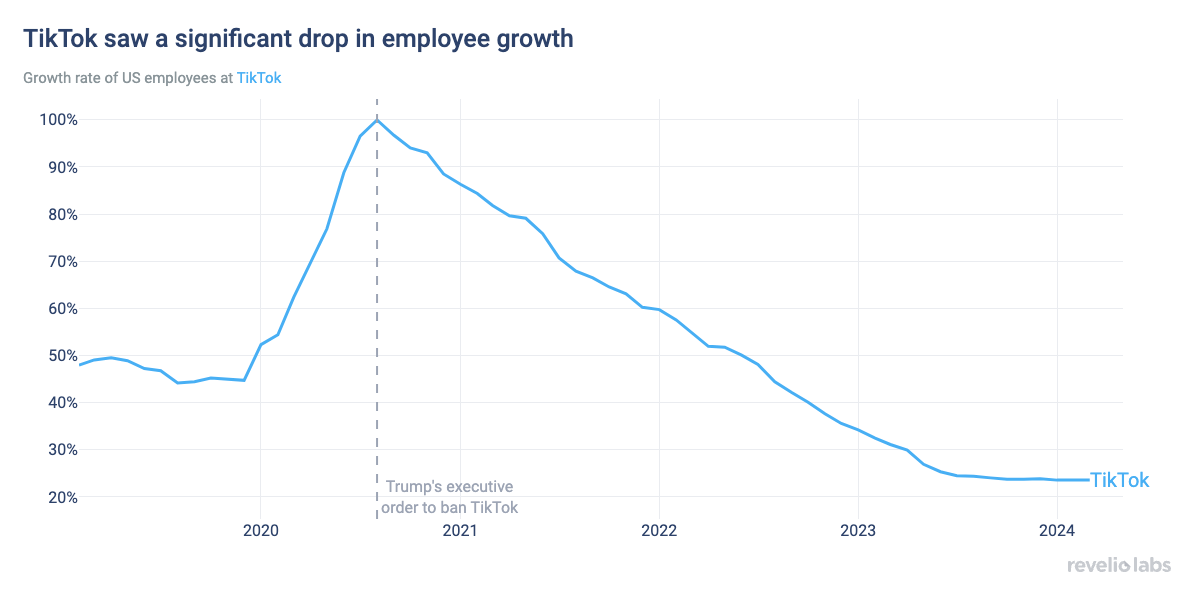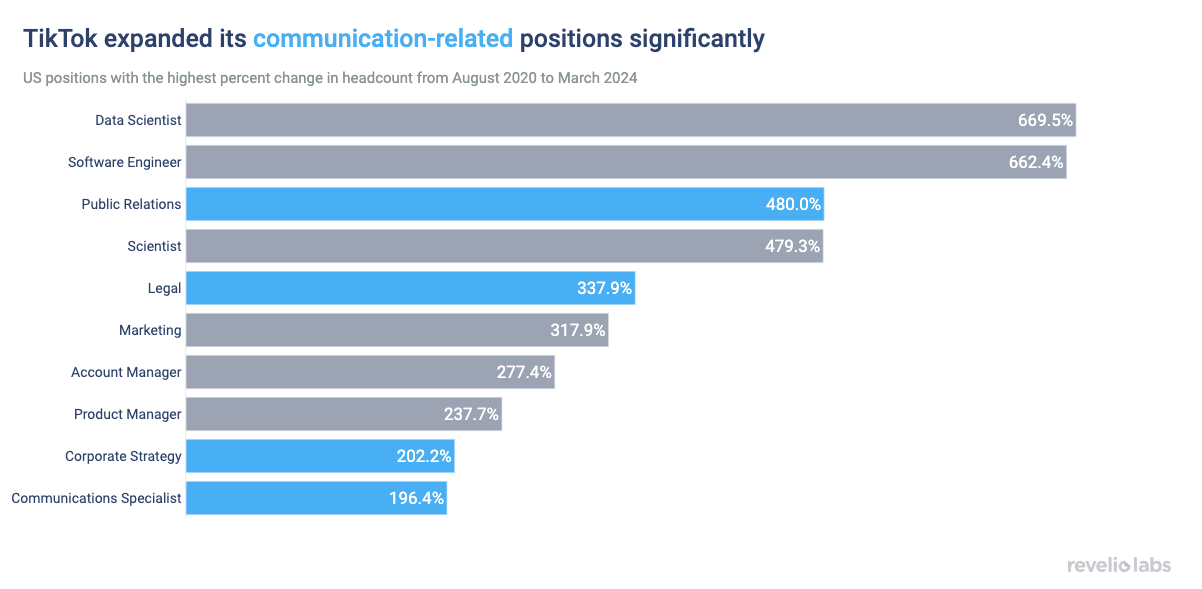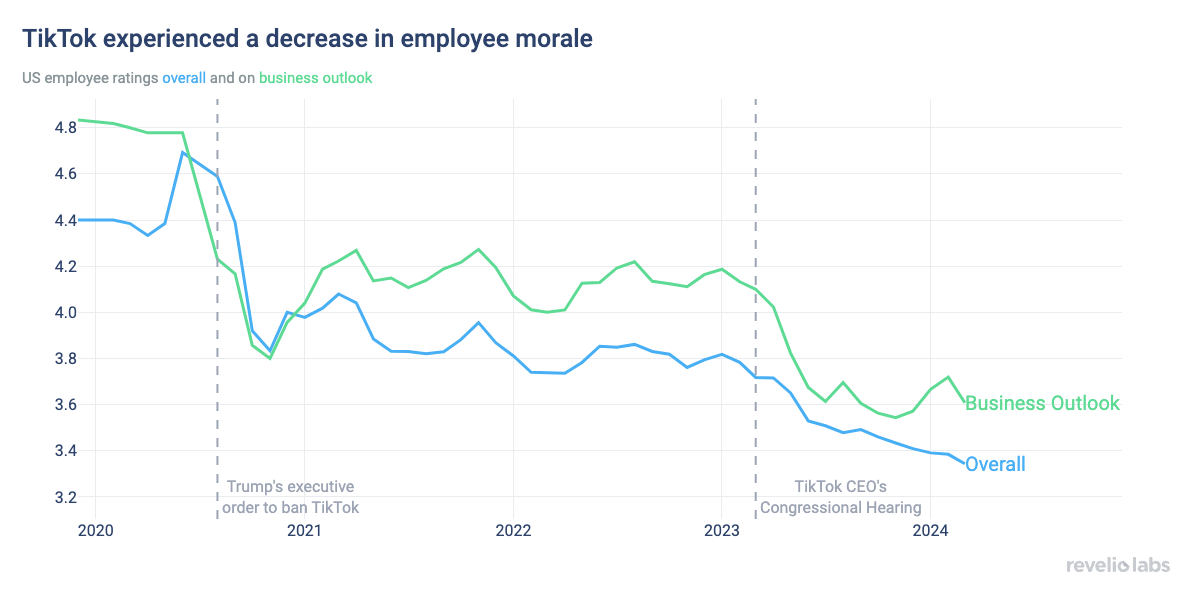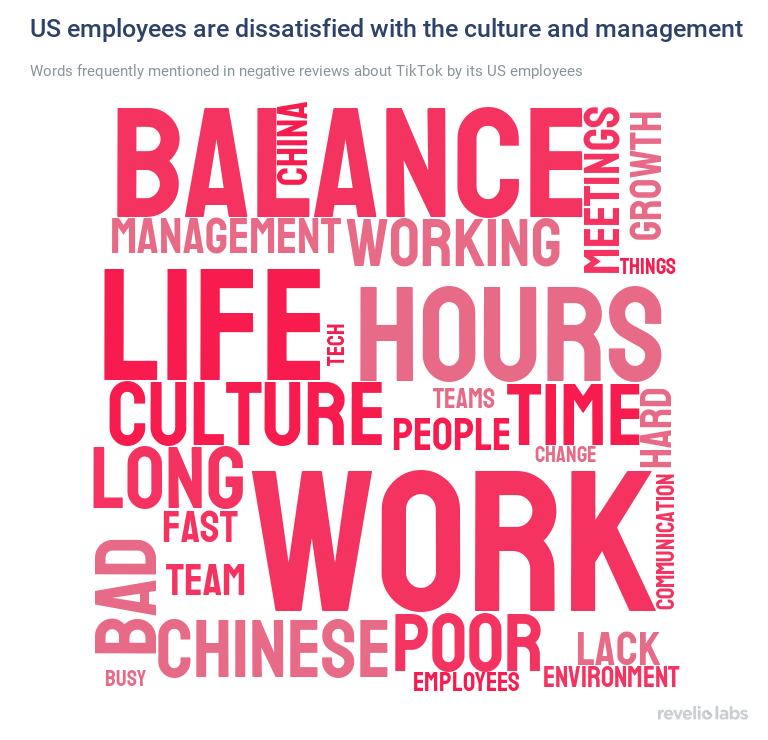Business Outlook Is Way Down for TikTok Employees
How the TikTok Ban is impacting its workforce

Since the talks around the TikTok ban began during Trump’s presidency in August 2020, TikTok has experienced a significant decline in US workforce growth. In response, the company has expanded its communication-related positions.
The uncertainty surrounding TikTok’s future has significantly impacted employee morale, resulting in a notable decline in overall employee sentiment and business outlook rating.
TikTok employees' dissatisfaction stems from a lack of work-life balance and challenges related to Chinese working culture.
The TikTok ban, initially proposed during the Trump administration in August 2020, has cast a shadow over the popular social media platform's operations and its over 7,000 US employees. The ban, which aimed to address national security concerns related to the app's Chinese ownership, has led to a tumultuous period for TikTok's employees. This week, using Revelio Labs' HR data, we examine the evolving landscape of TikTok's workforce and the impact on employee morale since the ban was proposed during the Trump era. Understanding the impact of the ban on TikTok's workforce sheds light on the broader implications of geopolitical tensions on the tech industry.
TikTok, which was officially launched in the United States in 2018, experienced rapid growth not only in its user base but also in its US-based workforce up until August 2020. However, since then, its employee growth trajectory has faced an abrupt decline. This decline coincides with the executive order signed by the Trump administration that aimed to ban TikTok in the US. The executive order, citing national security concerns, created uncertainty and regulatory challenges for TikTok's operations in the country. As a result, the company's ability to maintain its growth momentum has been significantly impacted.


Despite not growing as rapidly as before the ban, TikTok's workforce has continued to expand since the Trump administration's actions. In addition to investing in the platform's operations by adding more technical roles such as data scientists and software engineers, TikTok has also been aggressively expanding its communication-related positions, including roles in Public Relations and Legal. This suggests a strategic focus on both technical innovation and public relations efforts to maintain and grow its operations despite regulatory challenges.
Sign up for our newsletter
Our weekly data driven newsletter provides in-depth analysis of workforce trends and news, delivered straight to your inbox!


However, even with the company's continued expansion of its workforce and public relations efforts, TikTok's future in the United States remains uncertain due to ongoing legal battles and regulatory scrutiny. This uncertainty has taken a toll on employee morale, leading to a significant drop in overall employee sentiment and business outlook rating. For example, events like Trump's attempted ban and the CEO's congressional hearing have exacerbated these challenges, further impacting employee sentiment. These factors underscore the complex and challenging environment that TikTok faces as it navigates its operations in the United States.


TikTok’s employee dissatisfaction since Trump’s ban stems from a lack of work-life balance and challenges related to Chinese working culture. Employees have expressed concerns about the demanding nature of their roles, which often require long hours and a high level of commitment. Additionally, in line with our previous research on work culture clashes between foreign management and US employees, cultural differences have also contributed to the dissatisfaction. The Chinese work culture tends to be more hierarchical and less flexible compared to what employees may be accustomed to in the US. These challenges have compounded the already stressful situation following the ban, leading to a significant decrease in employee morale and job satisfaction.

TikTok has a sizable workforce in the US. A ban could lead to widespread job losses, affecting individuals and their families who rely on these jobs for their livelihoods. Given the competitiveness of today's tech job market, finding alternative employment may be challenging for those impacted.


